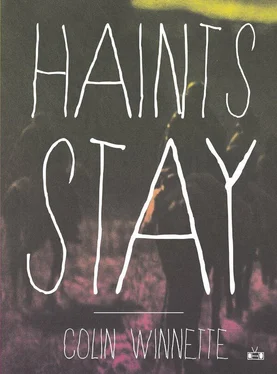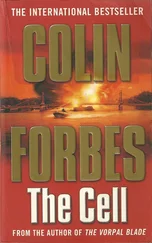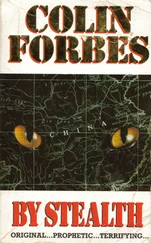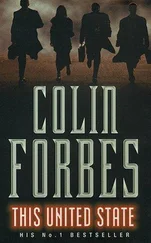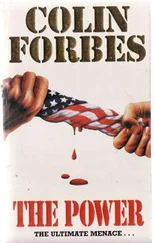During that time, Brooke must have killed fifty men. Maybe a hundred. He did not remember the majority. They often tracked and killed one man at a time. Rapists and murderers. Plenty of bandits. It was more than likely they killed a large portion of innocent men. If any man felt guilt about that, he did not make it known. Brooke found himself pleasantly at ease with following the instruction of a posted sign, or a desperate sheriff, or even consistent word of mouth.
In between hunts, they would drink. Some of the men had wives and children, or mothers, sisters, brothers, fathers, cousins, grandparents who depended on them. Some of them would send home money. A few even wrote letters. No one talked much about their personal lives. None seemed too satisfied with the hand life had dealt them.
They played cards sometimes, late into the night. They were not emotional drinkers. There were not many physical altercations amongst the men, and few wept or carried on, as Brooke would later witness over and over at card games in nearly every town he occupied for more than a few nights. When they played, these men were a casual kind of serious. They took each hand as it came and played and bristled slightly at a loss, but it rarely went any farther than that.
One man, an older one who called himself Grot because he “liked its sound,” used to sing the loudest at night and throughout their daily rides as well. His hair was long and gray and he wore a beard. The backs of his hands were crisscrossed with scars he’d likely dug himself. He shot animals from his horse throughout the day, for sport. Deer, squirrel, pheasant, lizard. But he did not collect them. Sometimes, another rider would, and he would laugh at them or ignore it. It was bothersome, but not unforgivable. One night, he lost his temper over a few pieces of gold and sprung on the boy who’d won them. Simple things seemed to bring out the worst in people. He plunged his thumbs into the boy’s eye sockets and scoured the sight from them. As the boy lay there screaming and clutching at his face, Grot lifted the boy’s beer in a bloodied hand and drank what was left of it. He struck the boy then with the empty bottle, shattering it and silencing him. He seemed to relax then. The other men around the fire rose and wrestled him up and over to a nearby tree. He managed a few blows across the necks and faces of these men but nothing that slowed them. They hung him and watched him kick and when he was done, they shot and buried the blinded boy.
That was the way of things. They were men without a country, but each individual answered to the group. Brooke did not ask many questions, and enjoyed well enough their day to day to keep in line with what they seemed to expect of him. They sang a number of songs, but Brooke’s favorite was the simple one. On and on as they rode, or as they sat together and drank late into the night, they would sing:
Drink and Hang
and Drink and Hang
and Drink and Hang
and Drink and Hang
On and on until it slowly, imperceptibly shifted to:
Drinking, Hanging
Drinking, Hanging
Drinking, Hanging
Drinking, Hanging
But it was all a mess now, thinking back on it. It could just as easily have been a decade with these men as a week. His memories were insubstantial fragments standing in for a much larger whole. Like how a wedding ring is said to represent a marriage. Or an old soup bowl in the dirt, a way of life.
Bird was dragging the bodies into the middle of the street and lining them up. Mary woke on her pallet and found the room empty, but for the chairs and the dishes from the night before. She heard the dragging sounds and, from time to time, the strained clap of a swinging door. She crawled to the window and peeked out and there he was, hunched and gripping an older man by his red pajama shoulders, dragging him with one arm through the dirt toward the center of the street. Some of the bodies had thin little lines of blood twisting up to them. Others had a body’s width of displaced earth tracing their path, as if they’d crawled from their front porch and down into the middle of the street to flip onto their backs and bask in the sun. They were cooking there in the unbroken heat. But they were not sweating.
“I cannot imagine what it is you think you’re doing,” she tried to say quietly from behind the door.
Bird did not respond, but instead settled the man a foot or so from a medium-waisted woman in a frilled blue and white dress.
“What are you doing?” she said, a little louder this time.
Again, Bird did not respond, but settled the man and turned back toward the home from which he’d drawn him.
“Bird!” said Mary. She stepped onto the porch of their home and checked either direction, up the street. “Stop.”
Finally, Bird turned.
“They’re all dead, Mary. Everyone here.”
“I know,” said Mary.
“How did you know?”
“That man was killing them.”
“But they’re all dead. Every single one of them. He killed every single one.”
“I know.”
“We are living in a town full of bodies.”
“Don’t touch them.”
“Look at all of them.”
There were all of the deputies, in a line. Then several men and women of middle age or older, and two boys who might have been fourteen or so. A young girl, probably thirteen. She had been bleeding from the waist before she died. Another girl had bled from a wound in her forehead. Her eyes were open and staring and they held the pale blue coloring of the thin clouds above her.
“I don’t want to,” said Mary.
“Well, you have to,” said Bird.
He turned and moved steadily toward the next home in the row that lined the backbone of this small town. He entered and the door swung shut behind him.
Mary went back into the building with the kitchen and she grabbed two plates from the table. She came back outside and when Bird finally emerged with a fresh body, another boy, this one just slightly younger than the rest, she whipped the first plate at him and struck him in the hand.
“Ow.” He dropped the body and turned and she moved closer and whipped another plate at him.
“Stop,” she yelled. “Stop, stop, stop,” as if she were whipping an endless supply of plates at him, but she was only spinning her hands out in front of her and screaming.
“I can’t,” he said.
“You have to,” she said. “I do not want to see them.”
“You have to,” he said. “We have to do something with them. We can’t leave them stuck up in their houses like this. They’re rotting on their dinner tables. They’ve wound up in the most horrible arrangements.” He was crying and gripping the young corpse again. This time, Mary let him drag it past.
She would not help him move the bodies. Instead, she agreed to dig. Finding a shovel wasn’t hard. She took the smallest and newest looking one and set to digging a few hundred feet from the stables at the far edge of town. Beyond that, there was only desert. A sun, all but risen. Looming red rocks like giants coming to crush them for all the damage they’d done.
She was not able to dig very much of the hole at all before a break was necessary. It was hardly big enough to bury a hand. She’d brought the wine out with her, some of the bread, and a chicken leg. She did not want to go back down that road any more times than was absolutely necessary. She did not like the wine but drank it down because she knew that it was supposed to be good for upset feelings and stomach trouble. She’d already had to dig several small latrine holes, in addition to the large one she was working on. She felt like something was eating away at her insides. She did not enjoy the idea of eating, but knew she needed to. It would be the first bit of food she’d managed all day, and she was working hard and needed the strength. To get the wine down, she held her breath, took it into her mouth, then swallowed hard and fast. Then she shoved a chunk of bread into her mouth to sop up the taste. She followed that up with a bit of chicken and the taste was nearly gone. The wine was unpleasant and burned in her gut. But it was settling her a little. She noticed that when she turned her head, it took a moment for her to realize she was looking back at those rocks in the distance. Each new vision took a moment to snap into place. It was a decent feeling, but she did not exactly like it.
Читать дальше
